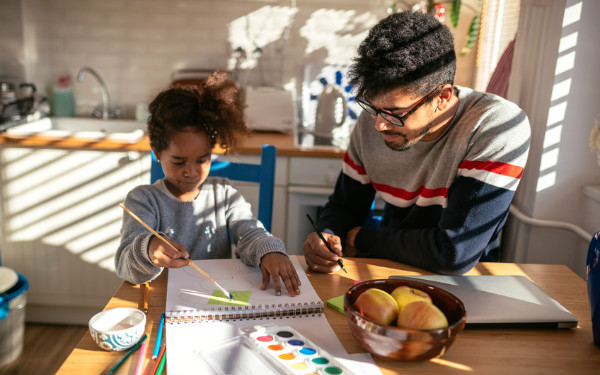
by a child in foster care
Being in care for me was and still is a mix of negatives and positives thrown together.
Other young people always ask what it is like, and the best way I can describe it is that for whatever reason you cannot go home and have to live with people who are essentially strangers to you.
They’re usually quite disappointed to hear that it’s nothing like Tracy Beaker.
I think one thing potential foster carers and foster carers should keep in mind is giving the young person space and time. You may mean well by checking on them every half an hour, but being in a new household with people they have never met before will take some time for them to get used to, and repeatedly checking on them will most likely push them away.
This is something I wish some of my previous carers had kept in mind.
The young person for themselves
I use a wheelchair, and one of my previous carers really treated me differently because of this. I don’t think they meant any harm but I really could have done without it.
I was 15 and wasn’t even allowed to go to the cornershop to get some chocolate. I mean, as if I was going to run away!
Foster carers should see the young person for themselves, not their disability or health condition. Get to know them as a person and not just assume they have a low level of independence and intelligence because their legs don’t work. I mean, David Weir didn’t even have legs, and look at what he managed to do.
This relates back to getting to know the young person. One of my carers really got to know me and remembered things I said. For example, I must have mentioned I get really bad dandruff, and when she went shopping later that week she picked me up some anti-dandruff shampoo. It’s the little things.
Don’t leave them out
I would suggest that, if you have children of your own, whatever you do don’t leave out the fostered young person.
For example, if every year at Easter your children get an Easter egg, get them one too.
If around Christmas all your children get advent calendars, get them one too. It’s not the egg or advent calendar they are after, it’s the fact you included them in the household unit.
The last thing I would say is I have a very strong opinion about carers learning about different religions and backgrounds. As a foster carer you will be taking care of children and young people of different ethnicities, backgrounds, religions and possibly even nationalities, so I think it is essential that you have a basic knowledge, such as what halal meat is or what kosher meat is.
Obviously, I’m not saying that foster carers should know everything because they will learn as they meet more young people, but they should at least have a basic knowledge and be eager to learn more.
This piece is an extract from the book ‘Welcome to Fostering’, a new guide to fostering published during Foster Care Fortnight, which runs from May 8 – May 21.


 Bournemouth, Christchurch and Poole
Bournemouth, Christchurch and Poole  Hampshire County Council
Hampshire County Council  Lincolnshire County Council
Lincolnshire County Council  Norfolk County Council
Norfolk County Council  Northamptonshire Children’s Trust
Northamptonshire Children’s Trust  South Gloucestershire Council
South Gloucestershire Council  Wiltshire Council
Wiltshire Council  Wokingham Borough Council
Wokingham Borough Council  Children and young people with SEND are ‘valued and prioritised’ in Wiltshire, find inspectors
Children and young people with SEND are ‘valued and prioritised’ in Wiltshire, find inspectors  How specialist refugee teams benefit young people and social workers
How specialist refugee teams benefit young people and social workers  Podcast: returning to social work after becoming a first-time parent
Podcast: returning to social work after becoming a first-time parent  Podcast: would you work for an inadequate-rated service?
Podcast: would you work for an inadequate-rated service?  Family help: one local authority’s experience of the model
Family help: one local authority’s experience of the model  Workforce Insights – showcasing a selection of the sector’s top recruiters
Workforce Insights – showcasing a selection of the sector’s top recruiters 

 Facebook
Facebook X
X LinkedIn
LinkedIn Instagram
Instagram
Comments are closed.